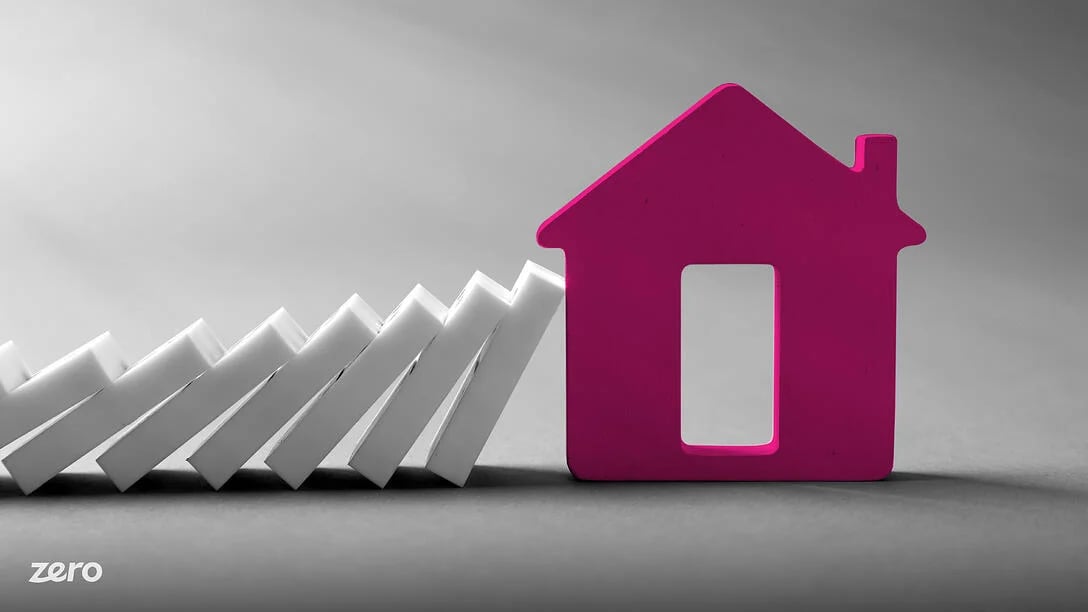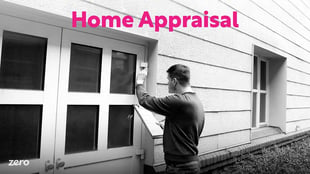Pre-Foreclosure? What Does It Mean & What To Do

A home doesn’t just fall into foreclosure status. There are stages and processes that take place behind the scenes before a home is sold via foreclosure. One of those steps is known as pre-foreclosure.
No one ever wants to experience foreclosure. Understanding the pre-foreclosure processes and which options are available to you as a homeowner is important. We’ll be covering everything you need to know below.
What Does Pre-Foreclosure Mean?
What does a pre-foreclosure mean? Before unpacking that question, let’s take a step back and review what a foreclosure is.
A foreclosure is when a lender enters the legal process of seizing property because the owner has not lived up to their contract by paying the mortgage. This is a legal right that the lender holds, and this right can be found within the original closing documents.
A pre-foreclosure is what occurs before the house actually goes into full legal foreclosure. If a homeowner were to ever fall behind on the mortgage, the mortgage company would likely make numerous efforts to collect their money.
This includes sending letters to the homeowner and contacting them by phone to discuss payment options. If their communication efforts are left unanswered, the lender will have little choice but to move forward with the pre-foreclosure and foreclosure processes.
How Pre-Foreclosure Works
If you are late on a single payment, generally speaking, your home will not move into the pre-foreclosure status. Depending on which state a home is in, lenders are unlikely to move forward with this process until the homeowner has fallen behind on their mortgage by about three to six months.
If or when that occurs, the lender executes the first steps of the pre-foreclosure process. The pre-foreclosure status is essentially a time clock between the homeowner and the lender. If the outstanding balance isn’t paid in full within a specific period of time, the lender moves forward with the foreclosure and reclaims the property.
What To Do If Your Home is in Pre-Foreclosure
If you own a home and it’s in pre-foreclosure, you still have options. There are measures you can take to avoid your home going into foreclosure. Let’s take a look at some of them.
Consider Loan Modification
One of the first options you can try is modifying your existing mortgage, especially if you purchased your home years ago when interest rates were higher. Refinancing your home with a lower interest rate can save you money each month.
Try a Short Sale
A short sale is another option you may want to consider if your home is in pre-foreclosure. Many mortgage lenders do not like to hold onto or sell physical real estate themselves. Therefore, they may be inclined to do a short sale.
A short sale is when the homeowner sells their home at market value, typically for less than what they owe on it. For example, if the outstanding mortgage balance is $280,000, the lender and homeowner can join together to sell the property for $250,000.
The homeowner isn’t responsible for the $30,000 difference, but it is very likely to negatively impact the homeowner’s credit score as well as their ability to buy another home in the near future.
Get a Deed in Lieu of Foreclosure
A deed in lieu of foreclosure is when the homeowner signs the deed over to a mortgage company. In exchange, the mortgage company will forgive the debt. Like a short sale, this will result in the loss of the home and subsequently require the homeowner to move.
Explore Forbearance
Forbearance is when the mortgage company agrees to stop collecting monthly payments for a specific period of time. However, once the period of time has elapsed, the mortgage company can require the homeowner to pay the outstanding balance in full in the form of a one-time payment or in combination with another repayment plan such as a loan modification.
For example, if your mortgage is $2,000 per month and your forbearance period was 4 months, the mortgage company would expect $8,000 at the end of the 4 months
Talk To Your Lender About Repayment Plans
Lenders are also often open to talking about repayment plans. If you temporarily fall behind with your finances due to an unforeseen circumstance, a mortgage company may be willing to work with you in this way.
For example, if you were injured and your injury made it impossible for you to work, then that situation would prevent you from earning an income. A mortgage company may be willing to accept smaller payments or interest-only payments for a set period of time until you are able to return to work
Should You Buy Pre-Foreclosure Homes?
Pre-foreclosure is not only on the homeowner’s mind. It can also be something a homebuyer is looking for. If you’ve ever shopped for homes online, you’ve likely seen homes in pre-foreclosure. But should you buy them?
Let’s explore what it means to purchase a pre-foreclosure home.
Getting a Deal
Pre-foreclosure homes, or homes soon to be in foreclosure, are generally priced below their market value. The reasoning is simple: the lender likely wants to get back at least what is owed on the home. Remember, lenders are typically in the business of buying and selling physical real estate properties.
If the home was initially purchased for $400,000, and the existing mortgage value is $250,000, the lender may just be interested in recovering $250,000, rather than trying to get the current market value of the home. In such cases, you may be able to get a great deal on a house you couldn’t otherwise afford.
Be Mindful
Even though the house may be priced well below market, it might not be in your best interest to purchase the property. If the homeowner fell behind on their mortgage payment, they may not have had the money to maintain the home.
There could be mechanical issues with various appliances, the roof may be in terrible condition, and any repairs that were done to the home may have been done incorrectly or unsafely just to save money. This is not true for all homes with a pre-foreclosure or foreclosure status, but it can certainly apply to many of them
Our Mortgage Learning Center features blogs on a wide range of mortgage and refinancing topics.
Know Your Options
Whether you're a homeowner facing a pre-foreclosure situation or a homebuyer looking to purchase a home in foreclosure, you should be aware of your options. A real estate transaction on both the buying and selling side can have lingering side effects. Knowledge is power, and knowing your options can help you avoid making costly mistakes.
Start the Homebuying Process Today!
This page last updated: October 6, 2022
Read more on this topic below.

When you buy a house and start making mortgage payments, your payment consists of four different components, known...

The vast majority of mortgage loans require you to put down a certain percentage of the selling price upfront....

Whether you’re a first-time buyer or you’ve purchased a home before, you’ve likely heard of a homeowner’s association....

People buy their homes for a number of reasons. Affordability, stability, and comfort are some of the most...

Mortgage brokers play an integral and active role in the mortgage market, offering customers a service not made...

There’s a lot of expenses to keep in mind when you’re thinking about buying a home. Between the price of the home, property taxes, your mortgage...

Conventional loans are mortgages offered by private lenders, banks, and institutions that are not backed by the government. Unlike FHA, USDA,...

Some homebuyers refuse to purchase a property if it is part of a property owner association. On the...

Research indicates that 58% of homeowners in HOA communities and single-family homes pay an average monthly fee...

Private mortgage insurance is something millions of homeowners pay for each year. However, this type of insurance does not protect

When you first set out to buy a home, it can feel like you’re taking an exam you forgot to study for. You have to make quick...

When looking to refinance or buy a house, the pre-qualified vs pre-approved mortgage debate can be...

A mortgage is often the largest monthly expense homeowners pay. The thought of reducing the amount...

It’s likely that your mortgage loan will be the largest loan you have during your lifetime. Mortgages are not a one size...

Refinancing your home can save you thousands of dollars per year! When you extrapolate that savings over...

For many people, owning a home is part of the American dream. To make this dream a reality, most people will take out a...

Whenever you’re looking to buy a house, you’ll quickly realize there are a lot of fees associated with obtaining a mortgage....

A loan estimate is crucial to obtain when looking for a loan. This estimate not only gives you the details of a mortgage but also compares offers...

If you’re looking to buy a house, and do not have a mountain of cash saved up, you’ll need to consider getting a mortgage to help you finance this...

Buying a home? You’ll likely need to get it appraised before you receive the clear to close. If you’re wondering...

If you’re an active service member, a veteran, or the surviving spouse of a veteran, and you want to ...

Innovative and cost-effective home improvement ideas are all over the internet, especially when it comes to...
